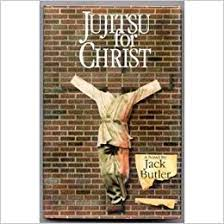In a recent email thread, poet and novelist Jack Butler and I talked about writing sex scenes. I mentioned Barbara Kingsolver’s essay on the subject in “A Forbidden Territory Familiar to all” from the New York Times series “Writers on Writing ,” in which she talked about how difficult it is to write sex scenes that are not salacious and don’t sound like something out of a medical textbook. (http://movies2.nytimes.com/library/books/032700kingsolver-writing.html ) Kingsolver wrote: “My dread is that people will take my book for something other than literature and me for something other than a serious writer. …For decent folk of any gender, the official and legal position of our culture is that sex takes place in private, and that’s surely part of the problem. Private things—newfound love, family disagreements and spiritual faith, to name a few—can quickly become banal or irritating when moved into the public arena” and “The language of coition has been stolen, or rather, I think, it has been divvied up like chips in a poker game among pornography, consumerism and the medical profession. None of these players are concerned with aesthetics, so the linguistic chips have become unpretty by association.”
,” in which she talked about how difficult it is to write sex scenes that are not salacious and don’t sound like something out of a medical textbook. (http://movies2.nytimes.com/library/books/032700kingsolver-writing.html ) Kingsolver wrote: “My dread is that people will take my book for something other than literature and me for something other than a serious writer. …For decent folk of any gender, the official and legal position of our culture is that sex takes place in private, and that’s surely part of the problem. Private things—newfound love, family disagreements and spiritual faith, to name a few—can quickly become banal or irritating when moved into the public arena” and “The language of coition has been stolen, or rather, I think, it has been divvied up like chips in a poker game among pornography, consumerism and the medical profession. None of these players are concerned with aesthetics, so the linguistic chips have become unpretty by association.”
The silliness of the language of love becomes a running joke in the series “The Big Bang Theory” when the very mention of the word coitus from Sheldon is a laugh fest.
I told Jack that I thought he wrote one of the funniest sex scenes ever in Jujitsu for Christ. The scene takes place when Patsy comes across Roger practicing jujitsu in his back yard. They are naïve but adventurous and in love. He’s in his undies and the white jacket of his ghi.
“Hi sweetie,” she said as he turned around. Then she went over to him and fell to her knees and hugged his legs. It was his undies. His sweat smelled good, like the smell the sun would have if you could smell it.
“It will—it will—” he said in a strangled voice, but it already was, expanding and pushing, warmer and wiser than any snake. It sought and found the vent of his briefs, bloomed on the naked air.
“Oh, your thing,” she said. “Your pretty thing.” She knew about things, because her mother and father had made sure to leave information books on the kitchen table and had made sure to tell her so.
Jack said, “I used to love writing those scenes, too. For one thing, I was sick and tired of all those cookie-cutter sex scenes I was reading in other novels. Absolutely unconvincing, and not resembling sex in the least, at least not to me. I took it as a challenge to write sex scenes that were real and actually sexy, just as I took it as a challenge to write dreams that really felt like dreams and not just literary surrealism.”
I pulled my copy of Jujitsu for Christ off the bookshelf and skimmed it to find that scene and make sure I was remembering it correctly. I was. I found and read that scene and then decided to read the book from the beginning. I had read it twice before, once back in 1986 and once again a few years later. I’m reading it now for the third time and discovering it’s just as good as I remember. As Barry Hannah wrote: “It’s a great book. In fact, it’s the best book I’ve read all year. What wonderful music, what a genius underneath it all. Ranks among the best of all time.”
In an amazon.com review, Tim Hewitt wrote: “I’ve kept copies of this book around for years just to pass out to friends. I’ve even taught this book in an English class. This slim little book is laugh-out-loud funny in places, heartbreaking in others. A simple description of the plot would not do this book justice. Jujitsu for Christ is about race relations, martial arts, comic books, super heroes, human heroes, born-again baptists, left-out losers, and the need we all have to connect with others and be included.”
Sadly, Jujitsu for Christ is out of print. It was supposed to have been reprinted, but I can’t find the new edition, if there is one. There are a few used copies listed on amazon, and I urge readers to get them while they can.
